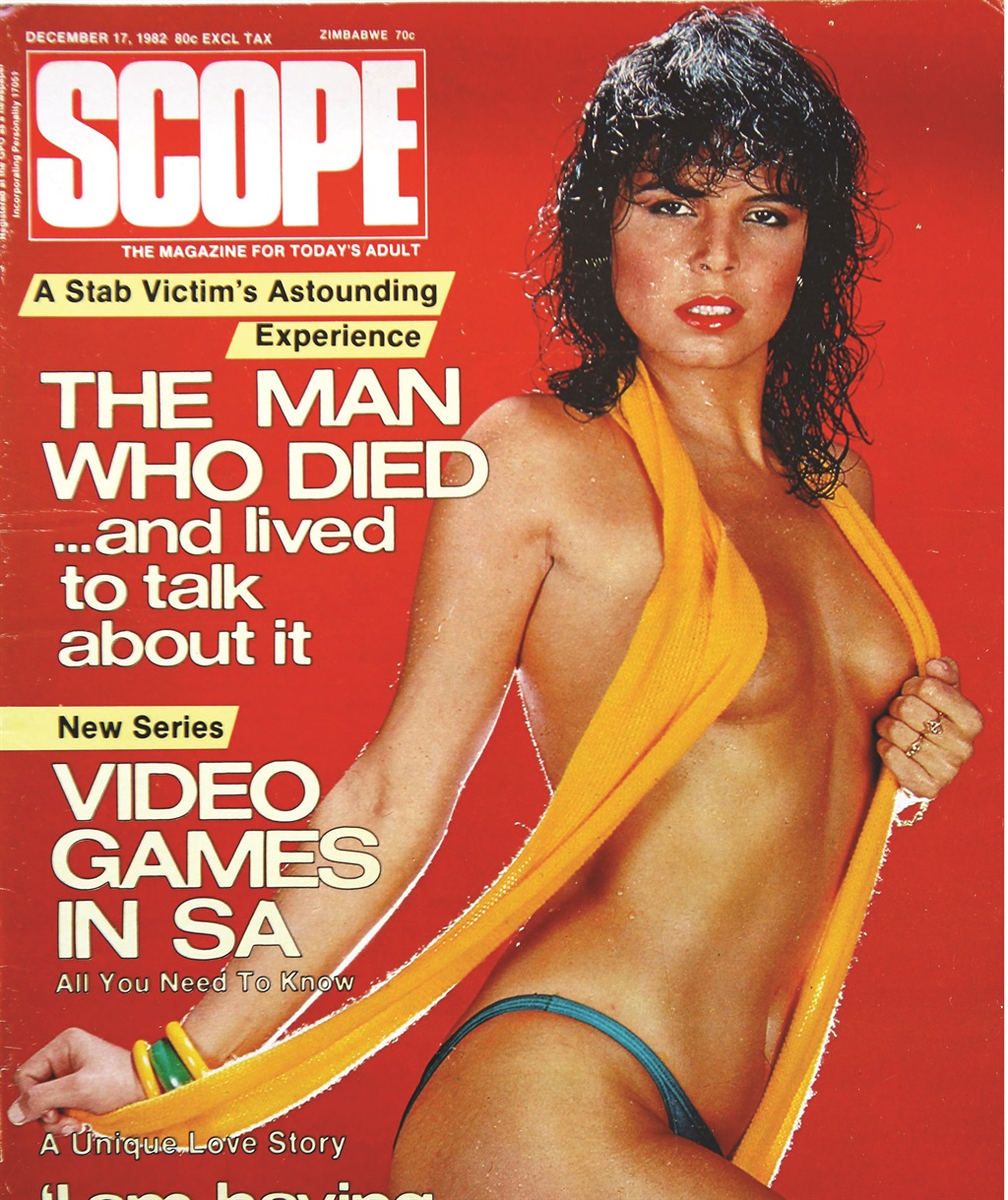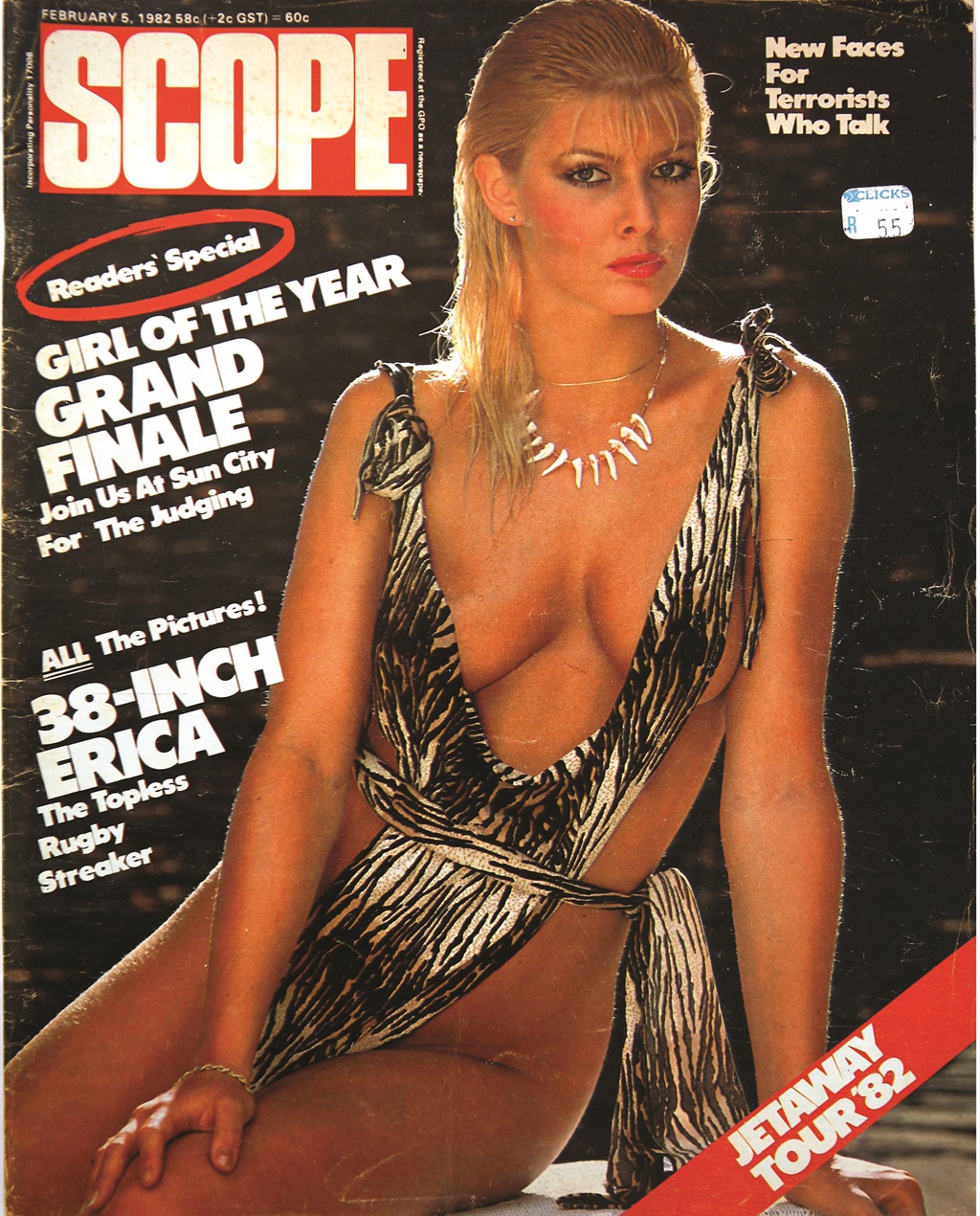
At the peak of its powers, the girlie mag Scope was South Africa’s bestselling magazine, shifting up to a staggering 250 000 well-thumbed copies a week.
Of course, they didn’t call it a girlie magazine, they called it a “men’s lifestyle magazine”, and it contained news, human interest and politics, too, but it is best known for its risqué photo shoots of semi-naked women, often with stars covering their more intimate spots – the stuff of fantasy for South African men of all races.
The magazine, established in 1966 and available in corner cafés everywhere, was even briefly banned in 1972 as it challenged the apartheid state’s censorship laws week in and week out, even placing adverts against the National Party. It eventually closed down in 1996.
But now its covers and a graphic analysis of its content can be seen gracing the walls of Wits University’s Origins Centre, where they are the subject of the photographic research of an art history doctoral thesis by Roelof Petrus van Wyk called Picturing Whiteness.
Van Wyk drew on the Scope magazines he had grown up with and collected and preserved over the years.
He has coded the covers and articles in colours and dots to indicate how Scope addressed sexuality in its content. In a twist in the magazine’s story, he’s using the mags to unpack his own sexuality.
“Scope really was the only mass-media publication during apartheid that actively spoke about sexuality,” the academic told City Press this week.
“I grew up in a small Afrikaans town, Kinross in Mpumalanga. It was Scope that first told me that I was a homosexual – they named it, gave me the language to describe myself. They showed me there were other homos out there other than Evita Bezuidenhout [Pieter-Dirk Uys]. It was important to me in defining my sexuality. It allowed me to pretend I was heterosexual; pretend I knew what a woman was and how to desire her,” Van Wyk says.
During apartheid, he says, Scope put out adverts against the ruling National Party and it was prepared to tell stories no one else was.
“They put out four editions on Aids, which then was really a white, gay plague. In 1985, five months after the Immorality Act was repealed, they ran 10 pages of pictures of couples in interracial relationships. That same year, they used Tina Turner as a symbol of powerful sexuality. They even featured transgender models on the cover ... The black mark against them, though, was that they supported the border war because they were anti-Communist.”
Although Van Wyk was well aware that the mostly lily-white Scope was read by women, gays and black people, its impact on black popular culture still surprises him.
“The black people around me who come to the exhibition ... every one of them has a story; a Scope connection. One black woman friend of mine said she used to think white women didn’t have nipples – they had stars instead,” he says with a chuckle.
* I NDEX:XY by Roelof van Wyk is on at Wits University’s Origins Centre Gallery until Wednesday
TALK TO US
Did you read Scope? What did you learn about SA in its pages?
SMS us on 35697 using the keyword SCOPE and tell us your story. Please include your name and province. SMSes cost R1.50. By participating, you agree to receive occasional marketing material
 |
| ||||||||||||
| |||||||||||||




 Publications
Publications
 Partners
Partners











